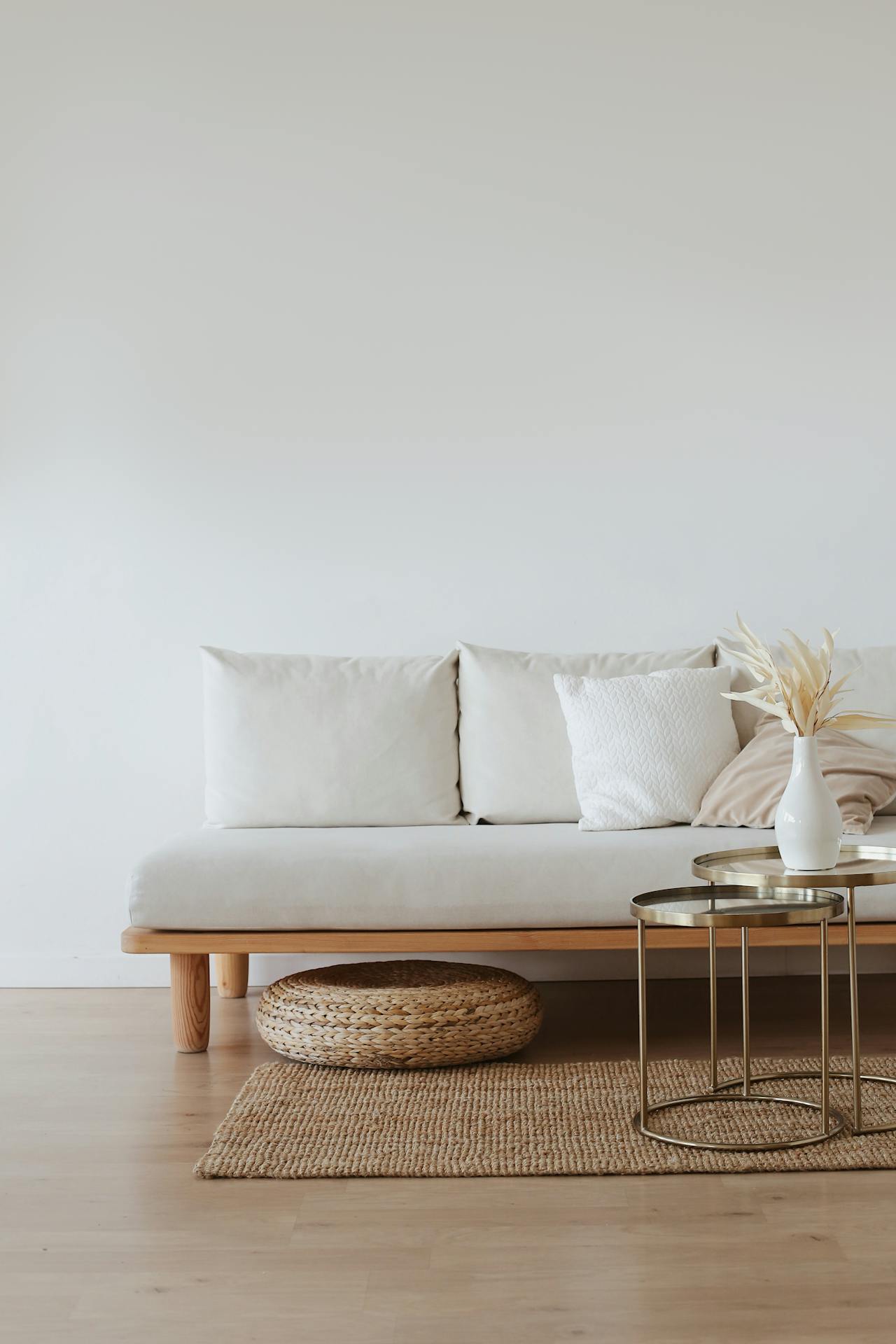
When it comes to home décor, the dining room holds a special place. It's a space where families gather for meals, celebrations, and conversations. One way to enhance the ambiance and appeal of your dining room is by using texture coating.
Many dining rooms suffer from plain and uninviting walls that lack character and warmth. Traditional paint can sometimes feel flat and uninspiring, leaving the space looking dull and unmemorable.
Plain walls can negatively impact the overall dining experience, making the room feel cold and unwelcoming. This can affect the mood and atmosphere during meals, reducing the enjoyment and comfort of the space. Additionally, plain walls may not complement the rest of your décor, making the dining room feel disconnected from the overall design of your home.
It offers an excellent solution to these problems. By adding depth and interest to your dining room walls, It can create a warm and inviting atmosphere that enhances the dining experience. Here’s how you can achieve this transformation.
It adds depth and dimension to your dining room walls, making them visually interesting and engaging. The varied textures can catch and reflect light in unique ways, creating a dynamic and appealing environment. Dining room texture plays a crucial role in achieving this effect.
If your dining room walls have imperfections like cracks, dents, or uneven surfaces, it can effectively hide these flaws. This not only improves the appearance of your walls but also adds to the overall polish and refinement of the room. Wall texture room solutions can be particularly effective in concealing these imperfections.
With a variety of texture options available, you can choose a style that complements your dining room décor. Whether you prefer a subtle, sophisticated look or a bold, dramatic effect, it offers endless possibilities to match your taste and enhance your space. Dining room texture options can significantly boost the elegant appeal of the room.
A smooth finish texture coating offers a sleek and modern look for your dining room. This type of coating provides a clean and elegant appearance that can make the space feel more refined and sophisticated. Wall texture room designs with a smooth finish are particularly popular.
A sand finish texture coating adds a subtle, gritty texture to your walls. This option can create a cozy and inviting atmosphere, perfect for a dining room where you want to encourage relaxation and comfort. Wall coating with a sand finish is an excellent choice for a warm ambiance.
The knockdown finish is a popular choice for dining rooms, offering a Mediterranean or Spanish-inspired look. This type of texture coating creates a rustic and charming effect that can add character and warmth to your dining room. Room texture with a knockdown finish can enhance the rustic appeal.
Consider the existing style and décor of your dining room. Choose a texture coating that complements the overall design and enhances the elegant appeal. For example, a modern dining room may benefit from a smooth finish, while a more traditional space might look great with a knockdown finish. Wall texture room designs should align with your style preferences.
The lighting in your dining room can significantly impact the appearance of the texture coating. Consider how natural and artificial light will interact with the textured walls. A texture that catches and reflects light can create interesting visual effects and enhance the ambiance of the room. Wall coating can enhance the visual appeal when paired with the right lighting.
Some texture coatings require more maintenance than others. For instance, a heavily textured wall may collect dust and require regular cleaning. Consider your willingness to maintain the walls when choosing a texture coating. Dining room texture should be chosen with maintenance in mind.
Before applying this, it's essential to prepare the walls properly. This includes cleaning the surface, repairing any imperfections, and applying a primer to ensure proper adhesion. Wall texture room preparation is crucial for a successful application.
The tools you use will depend on the type of texture coating you choose. Common tools include trowels, brushes, rollers, and spray guns. Make sure you have the right tools for the job to achieve the desired effect. Dining room texture requires specific tools for different finishes.
Applying a base coat is crucial for creating a smooth and even surface. This step ensures that the texture adheres properly and provides a consistent finish. Wall coating needs a solid base for the best results.
Once the base coat is dry, you can begin applying the texture coating. Use your chosen tools to create the desired texture. Work in small sections to ensure even coverage and avoid overlapping. Room texture application should be done carefully for a uniform look.
After it is applied, you can add any finishing touches, such as additional color or a protective sealant. This step can enhance the durability and appearance of the texture coating. Wall coating may require additional treatments for longevity.
Creating an accent wall can add a focal point to your dining room. Choose a wall that draws attention, such as the one behind the dining table, and apply a bold coating to make it stand out. Dining room texture for an accent wall can be a game-changer.
For a unique and stylish look, consider using two different textures on your dining room walls. This approach can add depth and interest to the space, making it visually appealing and dynamic. Wall texture room designs with two-tone textures can add a modern touch.
Don't limit it to just the walls. Applying texture to the ceiling can create a cohesive and interesting design. A textured ceiling can add a sense of height and drama to your dining room. Wall coating on the ceiling can complete the room's look.
To keep your texture-coated dining room walls looking their best, follow these maintenance tips:
It is a versatile and practical solution for enhancing the appearance of your dining room. By adding depth, dimension, and character to your walls, it can create a warm and inviting atmosphere that enhances the dining experience. Whether you prefer a smooth finish, a sand finish, or a knockdown finish, there are plenty of options to suit your style and needs. Follow the tips and steps outlined in this guide to transform your dining room with beautiful and durable texture-coated walls.
1. How do I choose the right texture coating for my dining room?
To choose the right texture coating for your dining room:
2. Can I use texture coating on the ceiling of my dining room?
Yes, you can use it on the ceiling to create a cohesive and interesting design. A textured ceiling can add a sense of height and drama to your dining room.
3. Are there any creative ideas for using texture coating in my dining room?
Creative ideas include:












